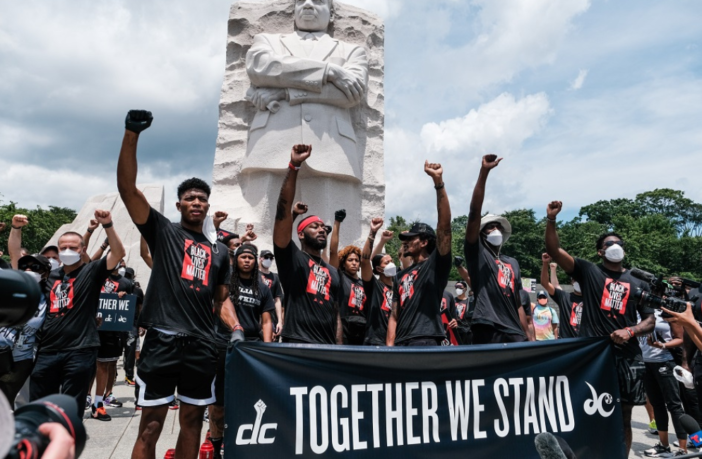On June 17, 2021, President Joe Biden signed a bill into law that declared Juneteenth as the newest federal holiday. It became one of the five date-specific federal holidays in the United States and is recognized by government-based organizations, schools and offices nationwide. As we enter into our third year of Juneteenth’s official federal birthday, we take the time to look back at the history and meaning of the holiday.
What is Juneteenth?
Otherwise known as Freedom Day or Emancipation Day, Juneteenth began on June 19, 1865, when Union troops marched into Galveston Bay, Texas. They had come to the city with news that the Civil War had ended two and a half years prior and that all enslaved peoples within the state had been set free under Abraham Lincoln’s Emancipation Proclamation. The bill, signed by Lincoln on New Year’s Day 1863, stated that enslaved people in the Civil War’s seceded states were required to be set free, and Texas was the last state to be delivered the news. While the June 19th date only confirmed the freedom of enslaved people in certain states, it is often recognized as the beginning of the end of slavery in the United States.
The official end would come nearly six months later, on December 6, 1965, when the 13th Amendment was added to the U.S. Constitution. Under this law, the Amendment declared freedom to all slaves in every state saying:
“All persons held as slaves within any State, or designated part of a State, the people whereof shall then be in rebellion against the United States, shall be then, thenceforward, and forever free.”
Becoming a Holiday
On the first anniversary of the Soldiers coming to Galveston, Texas, church communities held the first-ever Juneteenth celebration. These recognitions quickly gained traction throughout the South, especially amongst African American communities, and became commercialized in the 1920s and 30s. Celebrations of Juneteenth went from small gatherings to larger-scale events consisting of concerts, food festivals, historical reenactments, family reunions, street fairs and so much more.
These celebrations remained predominately in the Southern states until the 1960s and 1970s, when they gained further popularity during the Civil Rights Movement. The holiday became a symbol of pride and equality among Black Americans, leading to several states passing official legislation to recognize the day.
Throughout the 2000s and 2010s, activism to make the holiday federally recognized grew. Spurred on by the Black Lives Matter movement of 2020—campaigning from the Congressional Black Caucus and the National Juneteenth Observance Foundation and activist Opal Lee—the holiday became federally recognized in June of 2021 in a unanimous vote by the Senate as well as with an overwhelming majority in the House of Representatives. It was signed into law on June 17, 2021, just two days before Juneteenth.
Celebrating Today
With its federal recognition intact, Juneteenth is now guaranteed as an additional day off for government employees and public schools. Many other places of employment recognize the holiday and close-up shop in its honor.
If you’re looking to learn more about Juneteenth or Black history, here are some highly recommended materials:
Four Hundred Years by Ibram X. Kendi and Keisha N. BlainThe 1619 Project by Nicole Hannah-JonesBetween the World and Me by Ta-Nehisi CoatesJuneteenth by Ralph EllisonThe Juneteenth Story (children’s book) by Allian L. AgostiniOpal Lee and What It Means to Be Free: The True Story of the Grandmother of Juneteenth (children’s book) by Alice Faye Duncan
Today, family gatherings, church services, musical performances and festivals are still the most popular ways to recognize Juneteenth. These celebrations often include eating red food, such as red velvet cake and watermelon, and barbecued favorites like ribs and brisket. Additionally, many people use the day to shop at Black-owned businesses, support activism efforts surrounding Black and African American communities and to educate themselves on Black history.
Discover more articles for the Black community here.



